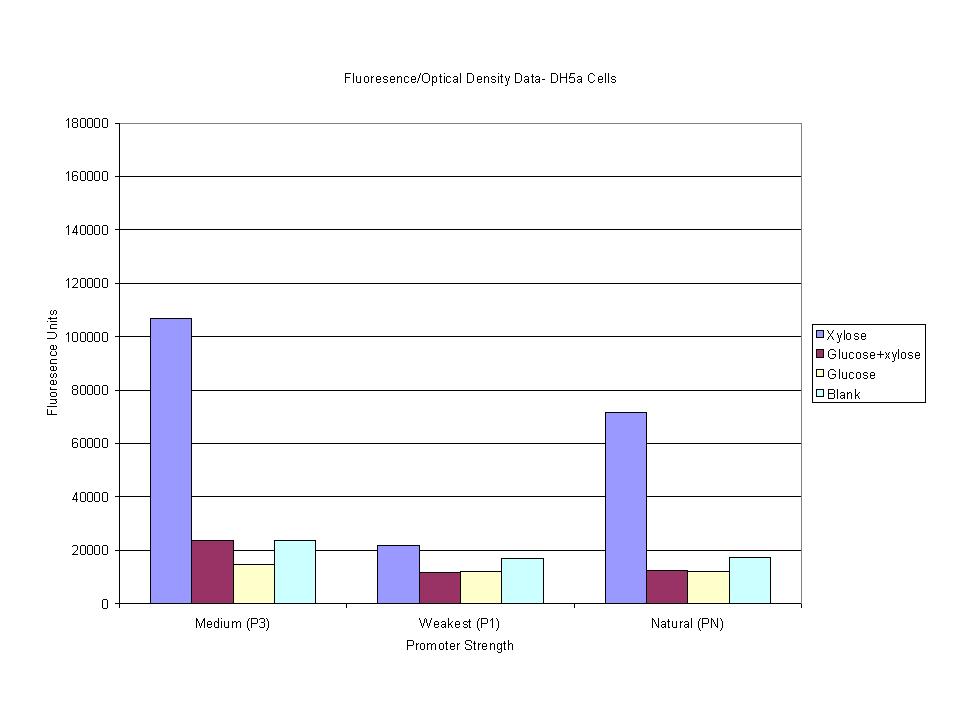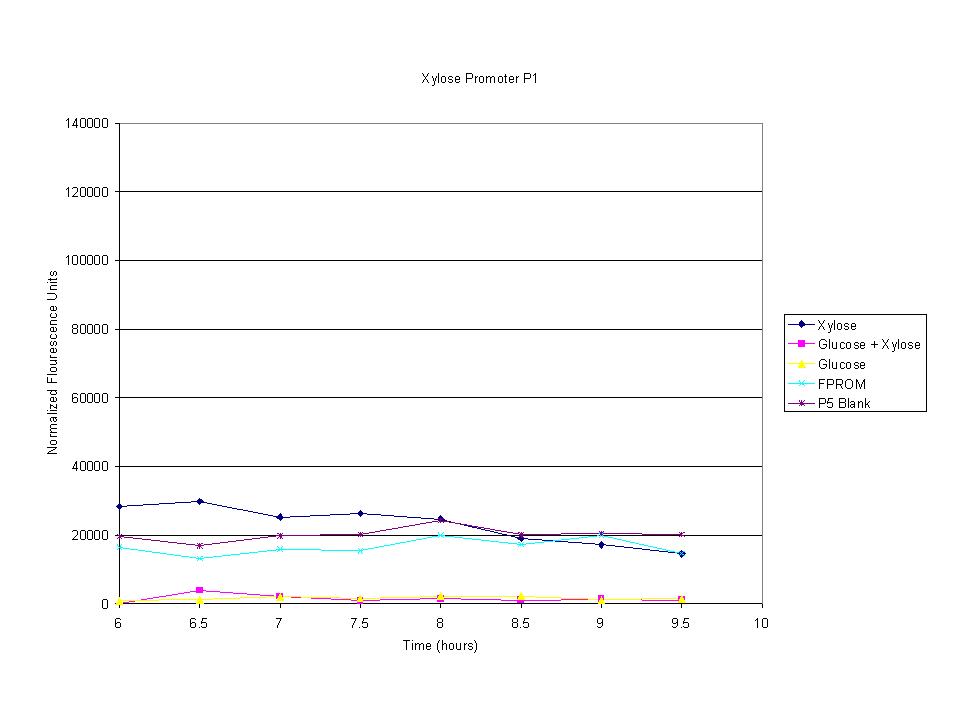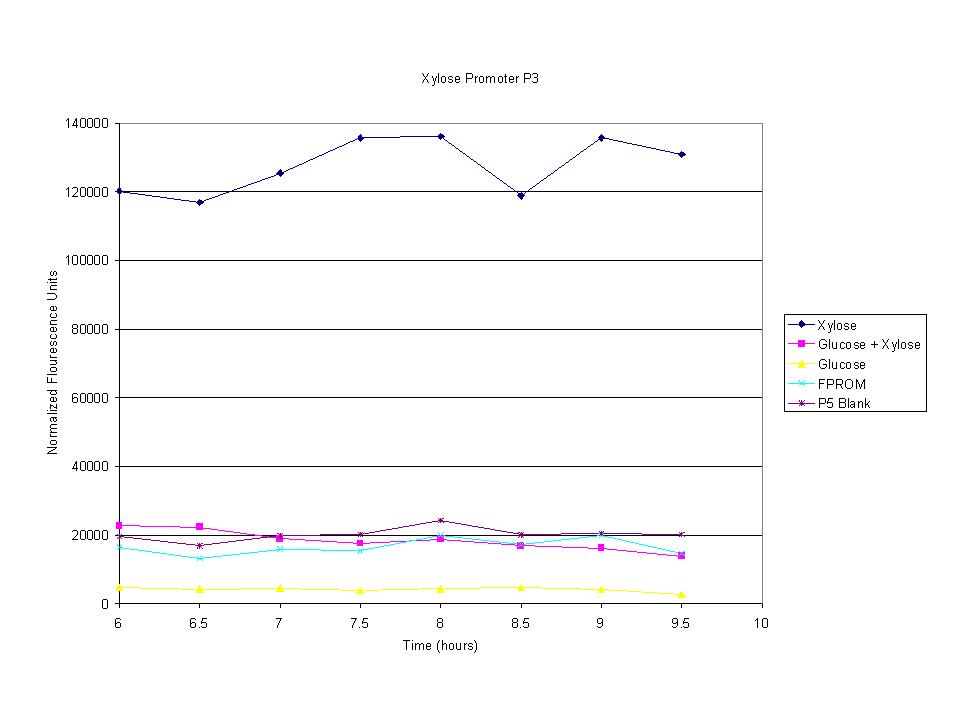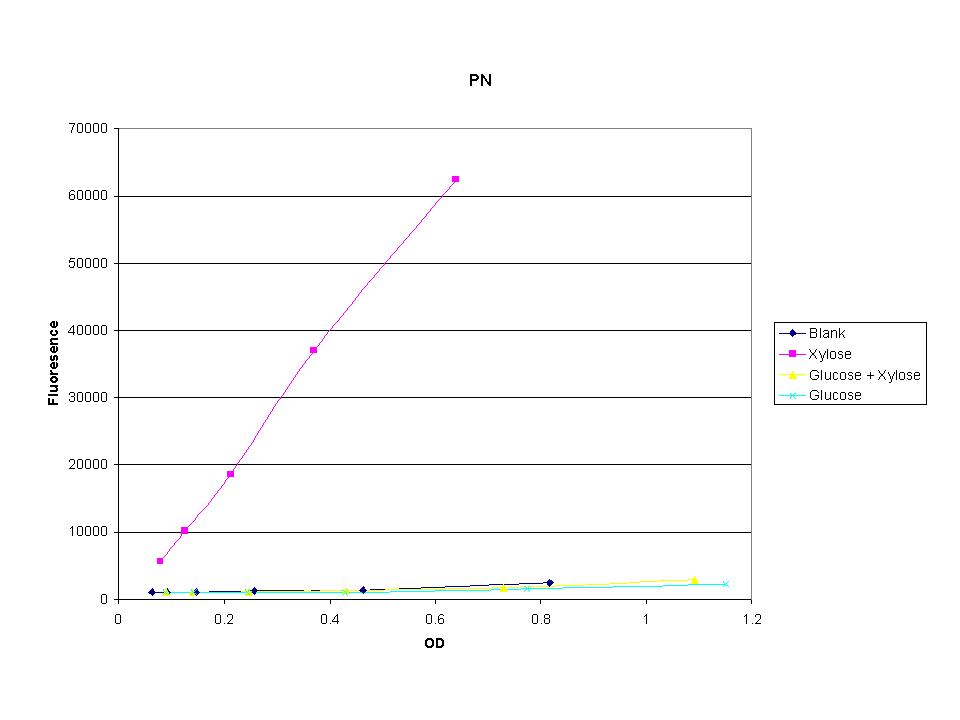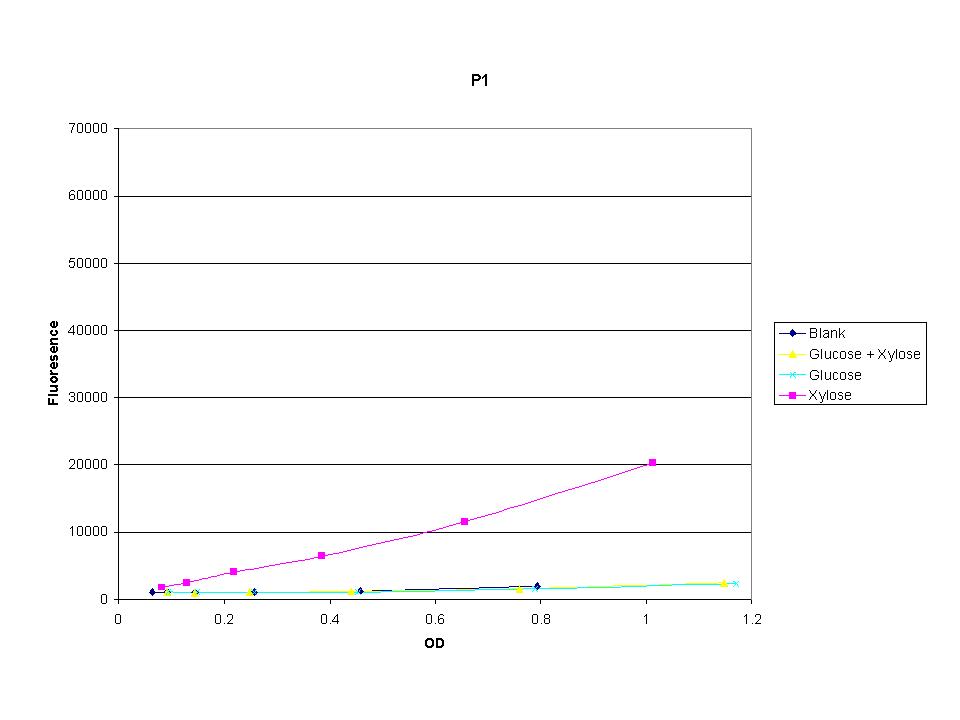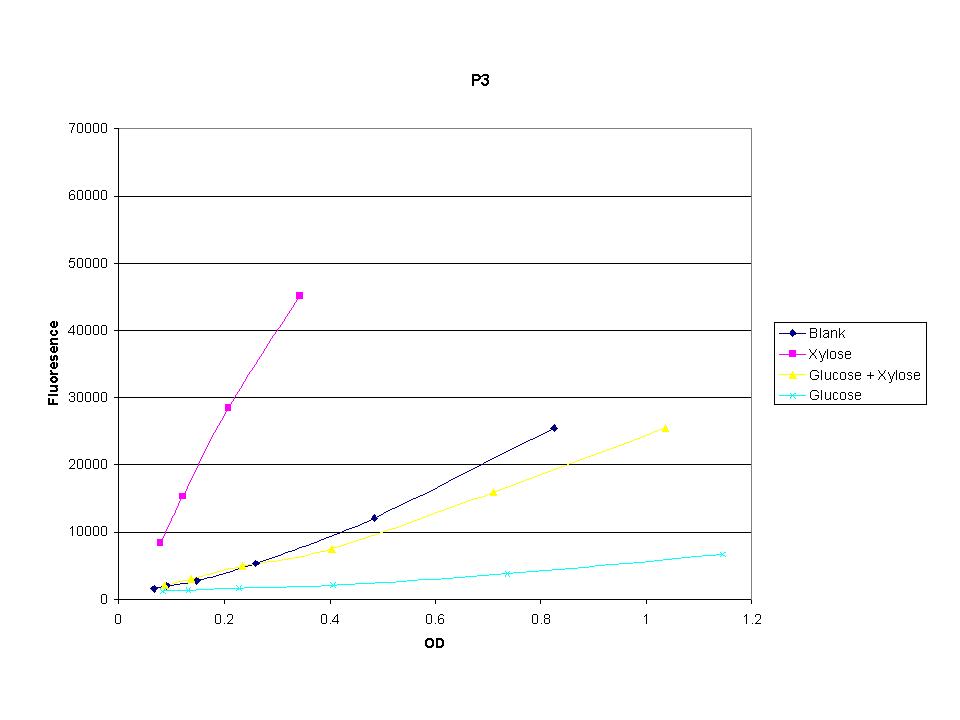Team:PennState/diauxie/progress
From 2008.igem.org

| Home | The Team | The Project | Parts | Notebook |
Diauxie EliminationNHR Biosensors
|
Progress & Results
We have completed our first set of cloning phases and are conducting our first round of testing and modification. Each test construct (promoter + GFP) has been cloned into pSB1A2 and transformed into DH5α, W3110 ∆xylB-G, and W3110 ∆xylB-R. Preliminary induction studies were run to find the optimal induction time and to see in what range OD and fluorescence were linearly related. Test Construct![[Test Consturct]](https://static.igem.org/mediawiki/2008/1/1b/Test_construct.JPG)
|
 "
"
